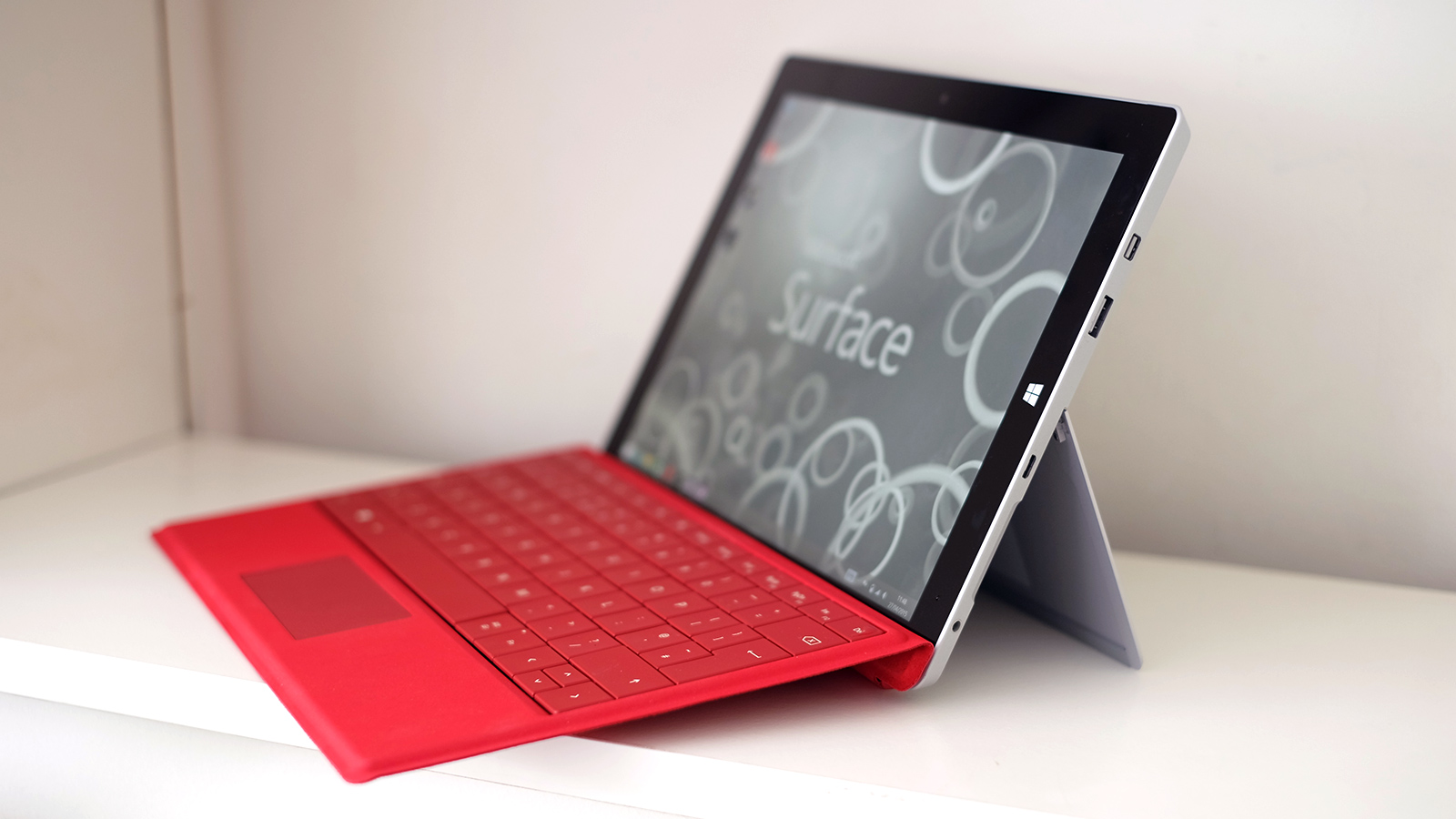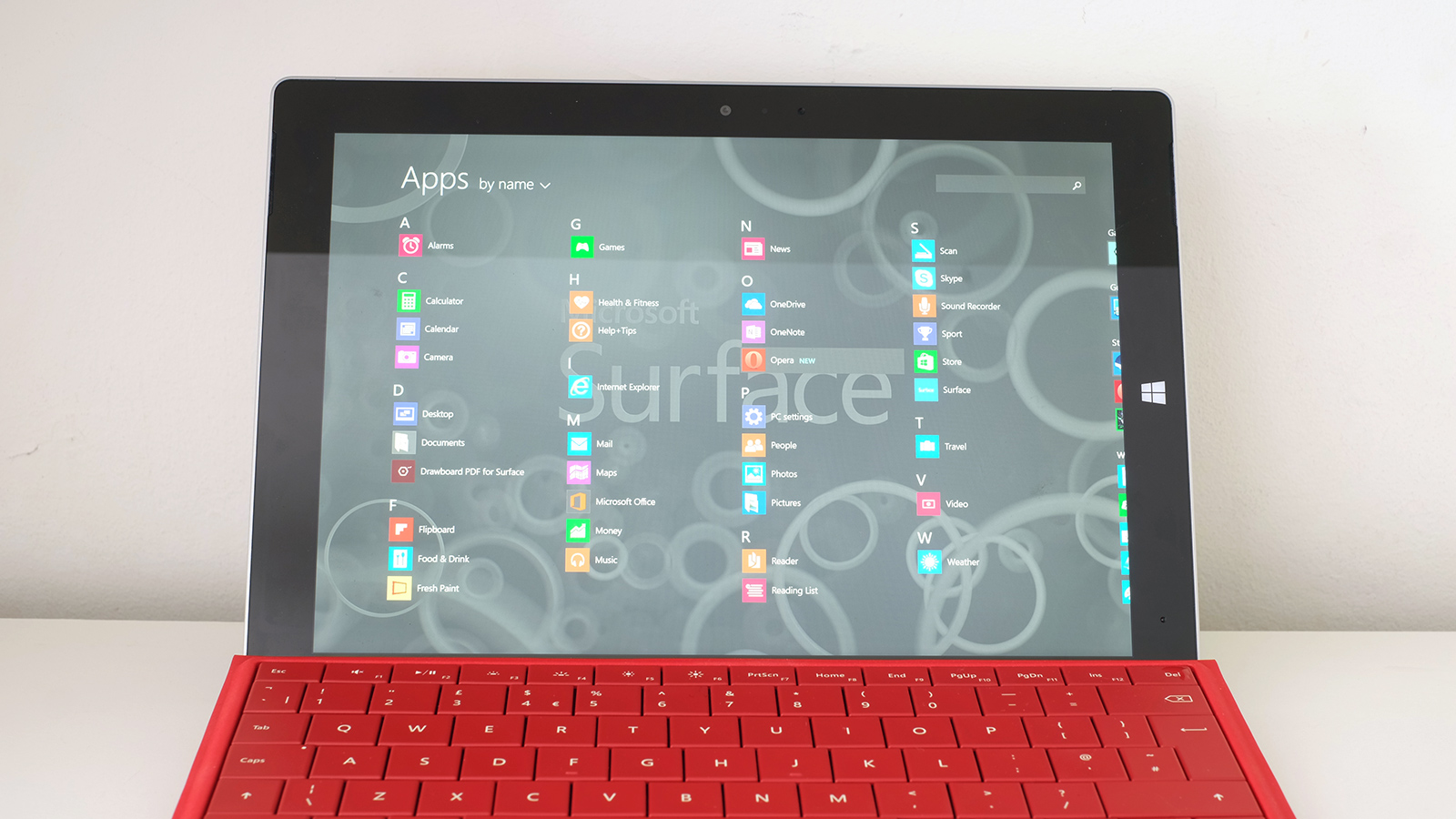Microsoft Surface 3 review
Will it be third time lucky for Microsoft's Surface?

The Microsoft Surface 3 is comfortably the best of the lower-cost Surface hybrids to date. The sum of improvements made to the hardware, both in the tablet part and the keyboard, and full Windows 8.1’s flexibility make it a very workable portable companion to a more powerful desk-bound laptop or desktop.
-
+
Good screen quality; greatbattery life; strong removable keyboard
-
-
Low CPU and storage performance; limited RAM; Fiddly to use on lap
The Microsoft Surface 3 is a natural, successful evolution of hybrid laptops that were, with hindsight, failures. Where the original Surface RT and Surface 2 were crammed into a restrictive mould by Windows RT, the Surface 3 runs full Windows 8.1.
With this software on-board the Surface 3 is limited only by the Intel Atom CPU. Unusual as the hardware may be, it's a full' laptop at heart, one with the added flexibility of a hybrid design.
Starting at 419 it provides better screen quality than most entry-level laptops too. However, as the optional-but-essential keyboard base increases the price to 529, it represents merely a good deal rather than a great one.

Design
The Microsoft Surface 3's body is similar to that of the Surface Pro 3's, but smaller. Where the Pro model has a 12-inch screen, this one has a 10.8-inch display, and the shrinking process comes with all-round more compact dimensions.
At 622g and 8.7mm thick, it's the slimmest and lightest Surface yet. However, this is not really an achievement if the Surface 3 is thought-of as a tablet. At this point, there are plenty of thinner, lighter rivals. In almost every respect, the hardware only shines when considered a laptop-replacer or a tablet-laptop hybrid.
Get the ITPro daily newsletter
Sign up today and you will receive a free copy of our Future Focus 2025 report - the leading guidance on AI, cybersecurity and other IT challenges as per 700+ senior executives
-
 ‘Phishing kits are a force multiplier': Cheap cyber crime kits can be bought on the dark web for less than $25 – and experts warn it’s lowering the barrier of entry for amateur hackers
‘Phishing kits are a force multiplier': Cheap cyber crime kits can be bought on the dark web for less than $25 – and experts warn it’s lowering the barrier of entry for amateur hackersNews Research from NordVPN shows phishing kits are now widely available on the dark web and via messaging apps like Telegram, and are often selling for less than $25.
By Emma Woollacott Published
-
 Redis unveils new tools for developers working on AI applications
Redis unveils new tools for developers working on AI applicationsNews Redis has announced new tools aimed at making it easier for AI developers to build applications and optimize large language model (LLM) outputs.
By Ross Kelly Published
-
 Google layoffs continue with "hundreds" cut from Chrome, Android, and Pixel teams
Google layoffs continue with "hundreds" cut from Chrome, Android, and Pixel teamsNews The tech giant's efficiency drive enters a third year with devices teams the latest target
By Bobby Hellard Published